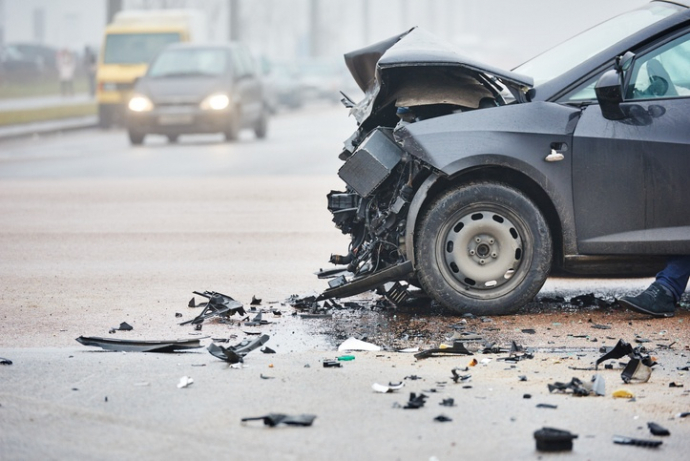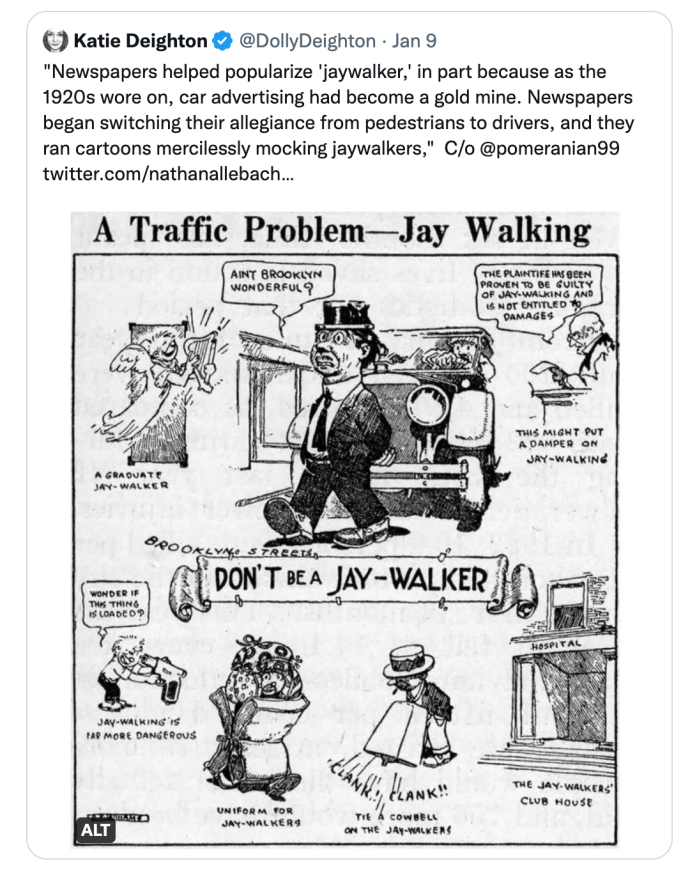
This was the week that saw a mother and child killed by a driver as they walked along a pavement on their way to nursery – the carnage witnessed by other pre-school-age kids.
You might think such a horrific event is rare, but each year in the UK over 40 people are killed by drivers as they walk on the pavement or verge. However, that’s not the reason this week’s fatal collision barely made the papers.
“If you want to kill someone, the best way to do it is in a car because you are highly likely to get away with it. One of the reasons is that people are being killed by cars all the time. We tolerate a level of killing by cars that we don’t tolerate in any other area. If as many soldiers were killed in combat every year in UK wars, we would be up in arms. We would be outraged. Horrified. Astonished. We would demand government action. But when it comes to people being killed by cars, we just accept this as part of the ordinary course of life, and death. Well, it’s about time we stopped accepting it.”
George Monbiot
Institutionalised apathy towards road harm
There’s institutionalised apathy towards the 24,000 people killed or seriously injured every year on British roads. Perhaps it’s hardly surprising given we’ve spent the last 100 years making driving convenient and life inconvenient.
Next time traffic prevents you crossing a street or a parked car blocks the pavement ahead, remember these perils of urban living weren’t always regarded as the norm.
In the 1920s, cars were a relatively new phenomenon and the public reacted to a soaring death toll with natural outrage. Newspapers labelled killer drivers as ‘remorseless murderers’ and likened the threat they posed to an epidemic disease. In Detroit, angry mobs would drag dangerous drivers from their cars.
Bells on fire stations, churches, schools and City Hall rang twice a day in memory of road fatalities. Towns printed ‘murder maps’ showing locations of road deaths. Two huge ‘safety parades’ featured wrecked cars occupied by bloodied mannequins, drivers dressed as Satan, and thousands of children dressed as ghosts – each representing a road death that year. The processions were followed by grieving mothers wearing a white or gold star to indicate the loss of their child.
The car makers tackled a looming PR disaster head on, spinning the story that pedestrians hit by cars were at fault through their own carelessness or guilty of the newly-coined offence of jaywalking. A culture of victim blaming was born, and a fallacy that road deaths are unavoidable accidents by drivers persists to this day.

The adoption of the term jaywalking is but one example of how a powerful and successful pro-motoring lobby has worked to obstruct and delay legislation that might curb driver freedoms. For example, it’s not an absence of technology that’s stopped the introduction of speed limiters – the ability to limit speed is as old as the motorcar itself. Such is the influence of the motoring lobby, that the so-called intelligent speed adaptation (ISA) now fitted to all new cars in this country is a speed limiter in its most watered-down form – a version of the tech that drivers can quickly and easily override in order to break the speed limit.
We’ve arrived at a point where road danger reduction in Britain is as politically toxic as gun control in America. During a decade of New Labour at the turn of the century, a pledge to halve road deaths was very nearly achieved. The downward trend would undoubtedly continued had Cameron not removed – to much fanfare – many of the speed cameras introduced by the previous administration. And there’s the rub. Pro-driving policies play well with a significant proportion of the electorate tied-up as they are with whimsical notions of personal freedom.
It doesn’t help that a rise in identity politics has seen a flourishing of ideological objections to LTNs, cycling infrastructure and, most recently, the idea of the 15-minute city. Perhaps some people object to these measures so viscerally because they represent a radical challenge to the status quo. Maybe it’s because they seek to redress imbalances in our society by championing the interests of the most vulnerable. After all, it is the poorest who are least likely to own a car but who are most affected by polluted air.
The law is as ass where road violence is concerned
The leniency shown to dangerous drivers is staggering. When sentencing an already banned and uninsured driver who had killed a pedestrian while parking his car at a speed of 5mph, Judge Mark Brown told the defendant: “I hope you have learned a profound lesson” before allowing him to walk free with an 18-month driving ban – that’s a ban, on top of a ban on top of a third ban.
“Not only are they second class because they have fewer rights than offenders, but just compared to other victims of crime, our government doesn’t define homicide as including criminal road death…so the driver of a speed boat can be prosecuted for homicide manslaughter, but a drunk speeding driver caught trying to evade police, well that’s just causing death by dangerous driving.”
Amy Aeron-Thomas, RoadPeace.
The police are under-funded and hampered by an inadequate legal framework – both symptoms of the complete absence of any systematic approach to road danger reduction.
If there’s any good news in any of this, it’s that we know what needs to be done.
Stop Killing our Children examines how road danger damages us all, whatever our age and however we travel, and questions our collective blindness to both its cause and remedy. Our 40-minute, crowdfunded film is narrated by the BBC’s John Simpson and features interviews with Chris Boardman, Dr Rachel Aldred, Dr Ian Walker, George Monbiot and the founders of the Stop de Kindermoord movement amongst others. It examines how we can turn the tide against road danger.
Please watch the full-length film below and share.
Together we can do more. Every time you buy a policy from us you help fund campaigns like the film project above.
The ethical choice
The ETA was established in 1990 as an ethical provider of green, reliable travel services. Over 30 years on, we continue to offer cycle insurance , breakdown cover and mobility scooter insurance while putting concern for the environment at the heart of all we do.
The Good Shopping Guide judges us to be the UK’s most ethical provider.

Yousaf
Shocking and disgraceful. That is my take on the perverse view that motorised vehicles are king and everything/everyone else is less important.
How much more space within the public domain does motorised traffic need? They have far too much space already and seem to be grabbing at even more.
An interesting article – thank you.
Tony
Bravo ETA, a very good and well developed article. It is though still difficult to see how things can change without the political will and politicians are persuaded more easily by big business lobbyists than many times their number of voters/constituents. Last years Highway Code changes are a step in the right direction, but of course the question of how these are backed up by police and the courts and the available sentencing too, will determine how far these help reduce casualties and make active travel feel safer.